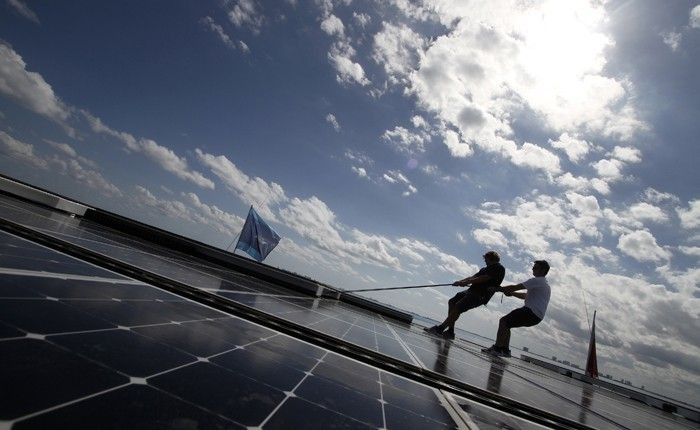Green job creation risks backfiring: Lomborg

Investments to create new jobs in clean energies risk backfiring by curbing employment in other parts of the economy, a study commissioned by Danish Skeptical Environmentalist Bjorn Lomborg said on Monday.
The report also said that jobs in green energies were often based on over-optimistic projections of a fast shift from fossil fuels in coming decades toward cleaner sources such as wind, solar or hydro power.
You can create jobs in clean energies but unfortunately it ends up at the cost of competitiveness elsewhere, Lomborg, head of the Copenhagen Consensus Center, told Reuters of a 33-page study about defining, measuring and predicting green jobs.
The author of 1998 book The Skeptical Environmentalist, Lomborg said many governments had stopped stressing that climate change was a looming threat to the planet since a 2009 U.N. summit failed to agree a treaty to cut greenhouse gas emissions.
Instead, he said many leaders had shifted to a more down-to-earth argument that investment in green technologies helps create new jobs as part of a drive to avert more droughts, floods, heat waves and rising sea levels.
The study he commissioned, by economist Gurcan Gulen of the University of Texas at Austin, said that clean energy jobs often required hefty subsidies.
Pushing aggressively to increase the share of these technologies, though clearly possible, will cost large sums of money and will increase (the) cost of energy to society, negatively impacting purchasing power, employment and GDP, Gulen wrote.
CARBON
Gulen said there were advantages to clean investments -- such as cutting air pollution and carbon emissions -- but that adding 'net jobs' cannot be defended as another benefit.
And there was no common definition of green jobs nor of how to count them, a problem also noted by past reports such as a Worldwatch Institute study.
Gulen said that a farmer who grows rapeseed to produce biofuels in a shift from growing wheat, for instance, is not creating a net new job, only changing employment.
Or a train driver who transports furniture, for instance, should not be relabeled as a new green worker if a shift in client demand means his cargo becomes wind turbines.
If you are going to use that kind of counting then pretty much everyone will be a green employee, Lomborg said.
Still, he said there were different grades of investments. Other studies have indicated that insulating buildings, for instance, can pay for itself in lower energy costs. Wind energy requires lower subsidies than solar power.
And there are big uncertainties. If nations impose a high price on carbon emissions, for instance, then long-term investments in green jobs make more economic sense.
(Editing by Jon Hemming)
© Copyright Thomson Reuters 2024. All rights reserved.





















